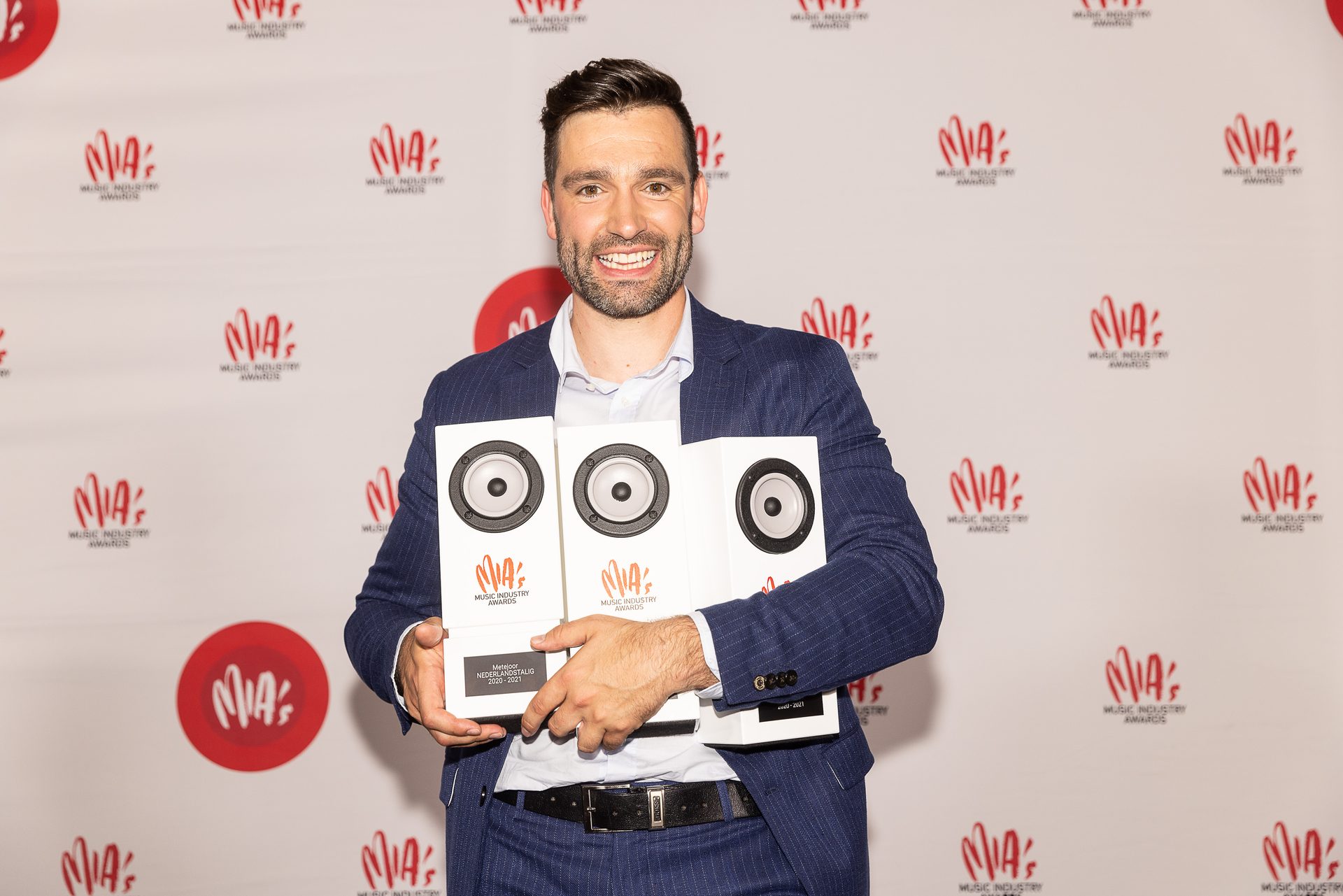Following a successful festival summer season for Flemish artists, the resurgence of Dutch-language music has reached remarkable heights.
The contemporary music scene has witnessed an important shift, with Flemish and Dutch headliners consistently selling out festival slots and city squares overflowing with eager fans during performances by artists like Metejoor, Camille and Pommelien Thijs.
The musical tide has turned
A decade ago, the music landscape in Belgium boasted an overwhelming preference for foreign-language tracks. Singing in Dutch was often relegated to niche genres such as cabaret or Flemish pop, as artists aspired to be played on international airwaves. It was widely perceived that Dutch-language music was largely overshadowed by Anglo-Saxon dominance. However, many believe the tide has irrevocably turned.

Metejoor poses with awards won at the 14th edition of the MIA's. Credit: Belga/ James Arthur Gekiere
This transformation has its roots in various factors, notably the proactive efforts of Flemish broadcaster VRT to integrate Dutch-language music into its radio networks. These initiatives include fixed quotas stipulated in agreements with the Flemish government, mandating a percentage of Dutch-language content across stations. As a result, artists have been emboldened to explore their creative expressions in their native tongue.
Billy Torney, Marketing Manager at CNR Records, highlighted the symbiotic relationship between radio airplay and artist contributions in a recent VRT article, asserting that the availability of a platform brings together creative and commercial investments, which ultimately elevates Dutch-language music. The Covid pandemic also played a surprising role, as global lockdowns redirected attention to local talent, leading to an accelerated appreciation for Flemish artists.
Glocalisation
The trend of embracing native languages in music extends beyond Belgium, reflecting a broader European phenomenon known as "glocalisation." Countries like the Netherlands, Italy and Scandinavian nations have all experienced a resurgence in domestically produced pop hits, while Spain has honed its focus on the Latin American market.
This musical landscape frees emerging Flemish talents from the pressure to conform to English lyrics. Lester Williams, manager of Pommelien Thijs, emphasised the shift in a VRT interview, noting that artists now possess the agency to pursue their strengths and preferences. Television programs such as #LikeMe have also been instrumental in fostering a generation of artists like Camille and Maksim, and Dutch-language artits
Related News
- 'From Art Nouveau to metro history': Take a musical tour through Brussels
- Tomorrowland voted best festival in the world by DJ Mag readers
- 'Holly' by Fien Troch to open 50th Ghent Film Festival
Additionally, Flemish hip-hop's rise underscores the broader normalization of Dutch language in diverse music genres. The trend's reverberation extends beyond concerts, making its mark on award shows like the MIA's, where Dutch-language artists consistently take home honours.
Experts unanimously concur that Dutch-language music has solidified its status as a full-fledged and enduring genre. While competition is expected to intensify, Dutch-speaking artists continue to rise. As Lester Williams aptly puts it, "More and more artists will choose Dutch. So, the level will go up, and we have to go with the flow to keep doing what we love to do."

